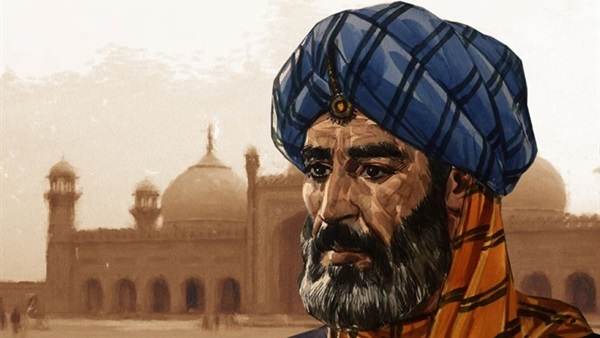Ibn Taymiyyah’s followers drink the water with which his dead body was bathed

On the morning of the twelfth of Dhu al-Qidah 728 AH, the muezzin
(announcer) of the castle’s prison in Damascus announced the death of one of the
inmates.
Two hours later, everybody in the city hurried toward the prison
to pay the dead person farewell.
The dead person was none other than Taqi al-Din Abi Abbas Ahmed
bin Abdul Halim Ibn Taymiyyah, who was known by the name “Sheikh of Islam”.
Salafists and jihadists used to call the day of Ibn Taymiyyah’s death the
“Doomsday".
Speaking about the same day, jurisprudence scholar Ibn Kathir said
a group of people arrived in the prison to bless and kiss the dead body of the
sheikh.
Then, he said, they read verses from the holy Quran and drank the
water with which his dead body was bathed.
All the residents of the city cried for days after the sheikh’s
death. People visited his grave to be blessed and many sessions of Quran
reading were held in most Arab countries, from Iraq to Egypt and the Levant.
Ibn Taymiyyah, who is known as one of the Salafist scholars and
considered as the religious term of reference for Daesh, did not expect all
these rituals to be made in his funeral. He spent his life denouncing Sufi
practices like getting blessing from the dead and visiting the graves,
including the grave of Prophet Muhammad. Nonetheless, his followers visited his
grave and drank the water with which his dead body was bathed.
Some of Ibn Taymiyyah’s followers even sold the thread that was
wrapped around his neck for 150 dirhams. One of them bought his turban for 500
dirhams. He bought it to get blessing and use it as a mediator between him and
God.
Sufism and Salafism
Ibn Taymiyyah was considered the most prominent Salafist sheikh. Salafism
did not approve the practices that accompanied his funeral. However, these
practices were acceptable for Sufism, to which Ibn Taymiyyah was inimical as
demonstrated by his writing.
Most of these practices were connected with social traditions prevalent
at the time. Ibn Taymiyah died in the eighth century, a time of high expansion
for Sufism.
Sufism continues to maintain its position in public thoughts,
despite its weaknesses. Salafism is sometimes accused of being manipulated by
Sufism, especially when it comes to sanctifying the patrons of Allah and the sheikhs.
Most Salafists have loyalty to their sheikhs. They spend their
times criticizing other sheikhs, only if they disagree with their sheikh. These
Salafists apply this verse from the holy Quran: “Falsehood cannot approach it
from before it or from behind it", to their sheikhs.
Ibn Taymiyah and Muslim Brotherhood
The Salafists were among several groups influenced by Sufism. The
Muslim Brotherhood, the movement that emerged in 1928 and is considered the
mother of political Islam, is one of the other groups influenced by Sufism too.
This influence dates back to Brotherhood founder Hassan al-Banna’s
early life. Al-Banna, (1906 - 1949), wrote in his biography, “Preaching and the
Preacher”, that he was influenced by his Sufi sheikh early on in his life.
Al-Banna ordered his followers to read some supplications in front
of other Brotherhood members. The supplications demonstrated influences from
Sufism.
The Brotherhood used to treat its members as parents did their
infants to ensure their loyalty.
Sufism was the first to introduce this concept of parental treatment
to Islamic culture. Sufi orders designed programs to show their followers the
road to Allah. Sufi orders raised their members to be in full submission to
their sheikhs. The Brotherhood did not aspire for more.





